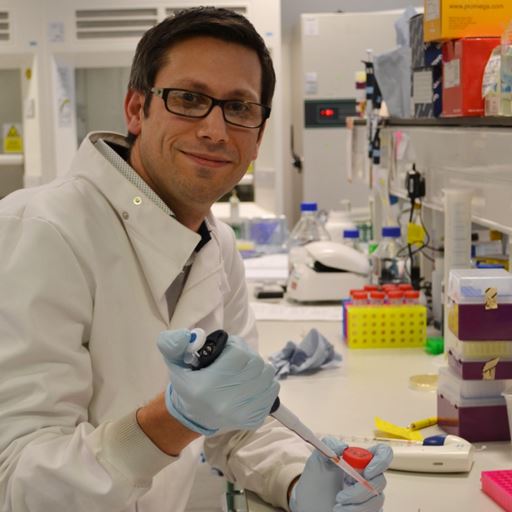Genes may show why Black men are at high risk of prostate cancer
-
Date
Thu 15 Feb 24

A UK pilot study is the first to have identified novel genetic mutations which could explain why Black men are at higher risk of developing prostate cancer compared to White men.
The researchers from the University of Essex, say they will use these findings to develop a test which could identify Black men at high risk of developing the disease, potentially revolutionising early detection and survival rates in this high-risk group.
Such a test, they say, could also be applied to all men in the future, transforming patient outcomes.
In the year-long pilot study, funded by Prostate Cancer Research (PCR), the DNA of more than 75,000 people were analysed which led to the discovery of a genetic code present in almost all of white men but only 50% of Black men.
Androgen receptor
These early findings, say the researchers, likely explain why a protein called ‘androgen receptor’, involved in the growth and spread of the disease, is present in higher amounts in Black men.
Lead researcher Dr Greg Brooke, Senior Lecturer in the School of Life Sciences, said: “Black men are twice as likely to be diagnosed with prostate cancer compared to White men and 2.5 times more likely to die from the disease.
Part of the reason for this is because androgen receptor levels are higher in Black men but until now, no one has known why.
If subsequent investigations add further proof to what we have found, we will create a genetic test which could predict which Black men will be most likely to develop the disease and in the future which men in the general population.
High risk men could undergo screening to facilitate early detection which will ultimately save thousands of lives.
Such tests could revolutionise the management of this disease in a similar way that mammograms have for breast cancer.”
Common cancer
Prostate cancer is the second most common male cancer, affecting 52,000 men a year in the UK, and killing 12,000 annually.
Male hormones like testosterone drive the growth and spread of prostate cancer by attaching to the androgen receptor which sends messages to the cancer cell to tell it to grow and divide.
This pilot study has found genetic differences that appear to explain why some Black men have higher amounts of androgen receptor than others.
Dr Antonio Marco, who led the study along with Dr Brooke said: "The mutations that we identified are in regions of our DNA that control androgen receptor levels.
These damaging mutations are frequently found in men with African ancestry while they are virtually absent in men of European ancestry.
If further studies confirm that these mutations are controlling androgen receptor levels, this could pave the way for a future when less Black men are dying from prostate cancer."
Vital research
Dr Naomi Elster, Director of Communications and Research at PCR said: “For far too long, people have known about the prostate cancer disparity between Black and White men and not done enough about it.
This vital research is changing that, giving us some much-needed answers about why Black men are at greater risk.
We hope it will lead the way to us being able to identify Black individuals who should be tested more regularly and perhaps given different treatments, helping to close the gap in survival."
.jpg?mh=500&mw=500&hash=6568B6C9CCF5290A596BEF6678B6AD0E)



